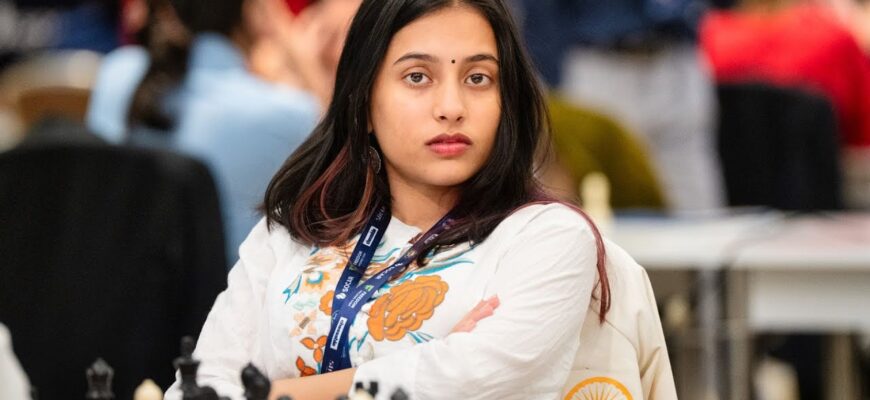In the high-stakes arena of the FIDE Women`s Chess World Cup, where experience often dictates dominance, a new narrative is being forged. Nineteen-year-old **Divya Deshmukh** of India, an International Master with aspirations that transcend her current title, has not merely participated; she has *conquered*. Her remarkable journey to the final, marked by a series of decisive victories against formidable, seeded opponents, has captivated the chess world and signaled the arrival of a truly exceptional talent.
A Meteoric Rise Against All Odds
Divya`s maiden appearance at a World Cup would, for most, be a learning experience. For her, it became a platform for an audacious display of skill and nerves of steel. Her path was anything but conventional, punctuated by triumphs over higher-ranked adversaries including China`s **Tan Zhongyi**, a former World Champion who recently contested the World Championship match, and other top seeds like Zhu Jiner and her seasoned compatriot, Harika Dronavalli.
Such a “giant-killing spree,” as it`s been affectionately termed, is not born of mere luck but of an underlying maturity and strategic depth that belies her tender years. The chess world, often a realm of quiet contemplation, now buzzes with the excitement of a new star challenging the established hierarchy.
The Semifinal: A Test of Endurance and Resolve
The semifinal clash against Tan Zhongyi was a microcosm of Divya`s tournament resilience. After a relatively quick draw in the first game with black pieces – a respectable outcome – the second game evolved into a marathon of mental attrition. At one point, Zhongyi, with the engine`s blessing, held an advantage, and Divya found herself grappling with time pressure. Many might have faltered, conceding to the relentless ticking clock and the pressure of a former world champion across the board.
However, Divya, embodying the tenacious spirit increasingly seen in young Indian chess talents, refused to yield. The game, a complex dance of inaccuracies from both sides as tension mounted, swung wildly. When Zhongyi, perhaps exhausted by the extended battle, committed a decisive blunder on move 90, Divya seized the opportunity with the precision of a seasoned predator. It was, as observers noted, a stroke of luck well-earned through sheer perseverance.
Ironically, in the aftermath, Divya herself expressed a desire for a “smoother path to victory,” reflecting a perfectionist`s eye for detail even in the throes of a historic win. Such self-criticism, even after dismantling a former world champion, speaks volumes about her drive and potential.
Historic Achievements and a Glimpse into the Future
At just 19 years old, Divya now stands as the **youngest finalist** in the history of the Women`s World Cup, surpassing Nurgyul Salimova`s record from the previous edition. She also joins Salimova as one of the only International Masters to reach this prestigious final stage, a testament to her extraordinary talent and nerve. This unprecedented run has not only secured her a place in the World Cup final but, more critically, has also qualified her for the coveted **Candidates Tournament** next year – a direct pathway to challenge for the Women`s World Championship title itself.
Her success adds another gleaming feather to a career already adorned with individual and team gold medals from the FIDE Olympiad. It’s a compelling statement about the rising tide of Indian chess, with young talents like Divya consistently pushing boundaries on the global stage.
As the chess world eagerly awaits the final, wondering if it could witness an all-Indian showdown, Divya Deshmukh has already etched her name into the annals of history. Regardless of the final outcome, her journey from a hopeful contender to a World Cup finalist is a powerful testament to youth, determination, and the unyielding spirit of a true chess warrior. Her story serves as a stark reminder: in chess, as in life, sometimes the greatest moves are made not by raw power, but by unwavering resilience.









